Dr Andrew Buchanan

Speaker: Dr Andrew Buchanan, AstraZeneca
Talk title: Applications of AI/ML to identify novel GLP-1R agonists
Biography: Dr Andrew Buchanan is a seasoned discovery & preclinical scientist, with 25 years of commercial R&D experience. He contributed to 20 antibody-based drugs entering first-time in human clinical studies of which to date three are marketed products. He has lead teams responsible for platform technologies and drug pipeline delivery to first in human studies. His current focus is on biologics targeting strategies, AI/ML innovation and early career mentoring. He was elected Fellow of the Royal Society of Chemistry in 2020 and with colleagues contributed over 40 original papers and patents.
Professor Dmitry Veprintsev
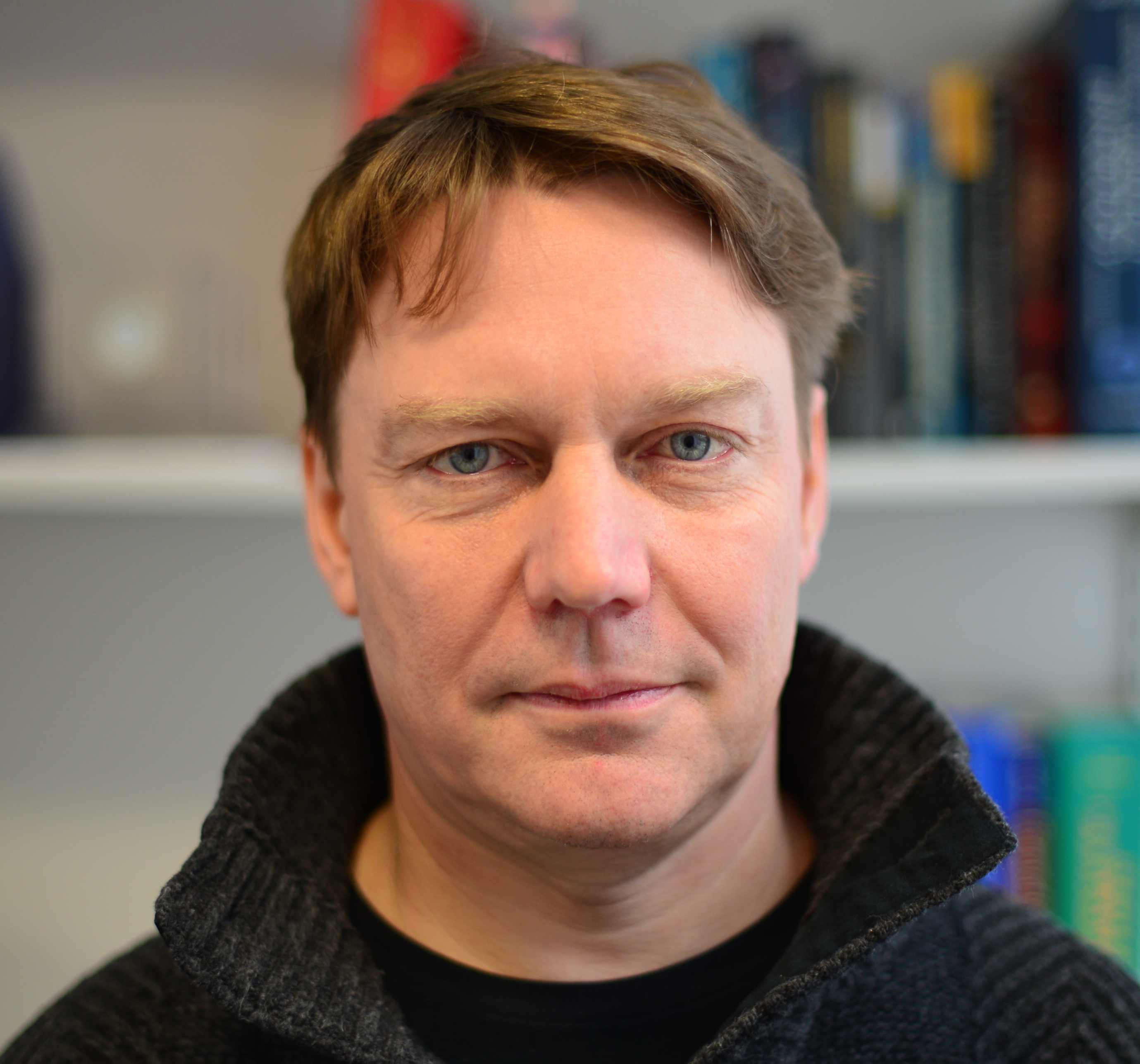
Speaker: Dmitry Veprintsev, Professor of Molecular & Cellular Pharmacology, University of Nottingham & co-founder and CEO, Z7 Biotech Ltd, a precision pharmacology CRO.
Talk title: Quantifying signalling bias at beta2 adrenergic receptor using biophysical reporters of G protein recruitment.
Biography: Dmitry is Professor of Molecular and Cellular Pharmacology at the Centre of Membrane Proteins and Receptors (COMPARE), University of Nottingham, where he provides leadership in structural and biophysical pharmacology of G protein coupled receptors. Following a PhD in protein folding at the Russian Academy of Sciences and at the Ohio State University, USA, he joined the MRC Centre for Protein Engineering and later the MRC Laboratory of Molecular Biology in Cambridge, UK as a postdoctoral fellow and as a staff scientist, focusing on the biophysical studies of the tumour suppressor p53. In 2010 he became a group leader at the Paul Scherrer Institute and ETH Zürich in Switzerland where focused his research on G protein-coupled receptors (GPCRs). In 2017 Dmitry joined COMPARE, a joined venture between the University of Birmingham and the University of Nottingham. In 2021 he co-founded Z7 Biotech, a CRO developing and providing innovative GPCR drug screening and precision pharmacology services. See www.veprintsevlab.org and www.z7bio.com for more information.
Dr Abigail Pearce

Speaker: Dr Abigail Pearce, Cambridge
Talk title: Interdisciplinary approaches to understand GPCR signalling
Biography: Abigail Pearce completed her PhD at the University of Cambridge in 2022, before starting a postdoc under the supervision of Prof Graham Ladds. Her research is focused on the structural mechanisms underlying agonist bias at G Protein-Coupled Receptors, with particular interest in Gα-subtype bias of the adenosine receptor family.
Thomas Harman
Speaker: Thomas Harman, University of Cambridge
Talk title: Characterisation of GPCR activation and pharmacology using solution state NMR spectroscopy.
Biography: Tom Harman is a final-year PhD student in the Nietlispach group in the Department of Biochemistry, University of Cambridge. He graduated with a MSci in Natural Sciences from Cambridge in 2021. His PhD research primarily focuses on the solution studies of the β1-adrenergic receptor with a particular focus on characterisation of the conformational equilibria changes induced upon drug binding to receptors and the effects of equilibria modulation on receptor coupling to G proteins. He also is interested in the roles of conformational dynamics in protein engineering and the application of NMR spectroscopy in understanding how to improve catalytic efficiency in enzymes.
Simon Cook
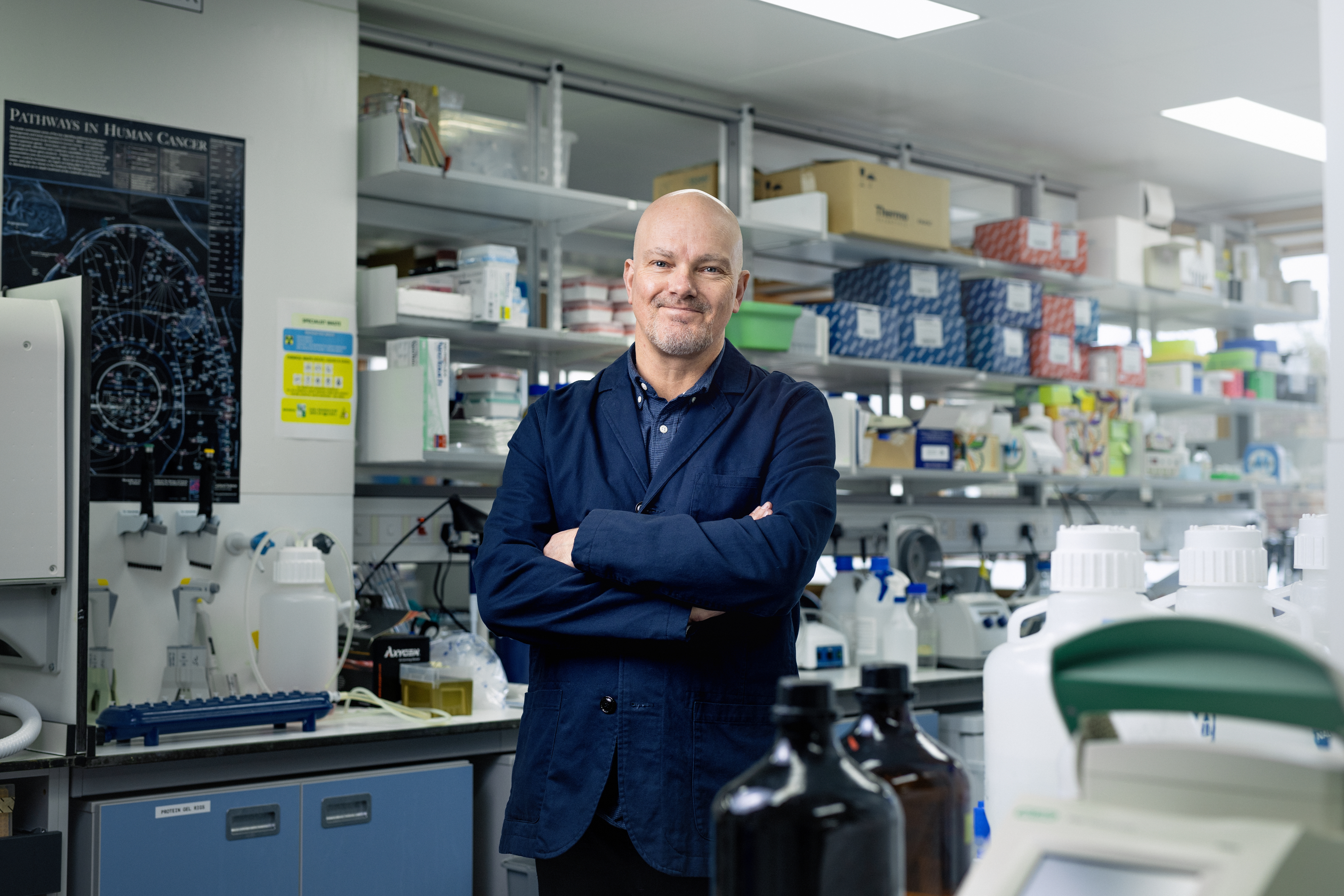
Speaker: Simon Cook, Babraham Research Institute
Talk title: Kinase inhibitors as Kinase degraders
Biography: After a Biochemistry degree at Royal Holloway College, University of London (1983-86) Simon undertook his PhD in Michael Wakelam’s laboratory at the University of Glasgow (1987-91), studying signalling by Phospholipase-C and -D. He then moved to Post-Doc with Frank McCormick at ONYX Pharmaceuticals in the San Francisco Bay Area where he studied the then emerging RAS-RAF-MEK-ERK1/2 pathway (1991-94). Simon stayed on at ONYX as a Associate Staff Scientist, Staff Scientist and member of the RAS Group Steering Committee (1994-1997). He also served as Project Manager for the Inflammation Project which he guided to corporate partnership with ParkeDavis/Warner-Lambert securing $10M funding for 3yrs to progress drug-discovery projects.
Simon joined the Babraham Institute as a Tenure-Track Group Leader in 1997 and held a Cancer Research UK Senior Cancer Research Fellowship from 2000-2006. From 2013-2021 he coordinated Knowledge Exchange and Commercialisation activities within the Institute. Since September 2020, Simon has led the Institute’s Signalling Programme and is currently Institute Director.
Throughout his career Simon has collaborated extensively with the Biotech and Pharma sector. Collaborations with AstraZeneca for more than 15 years identified mechanisms of innate and acquired resistance to protein kinase inhibitors including MEKi, FGFRi and mTORi. He has also collaborated with Astex Pharmaceuticals, MISSION Therapeutics and PhoreMost (through a collaborative Innovate UK award) to translate his knowledge of signalling pathways.
Professor Miriam Stoeber
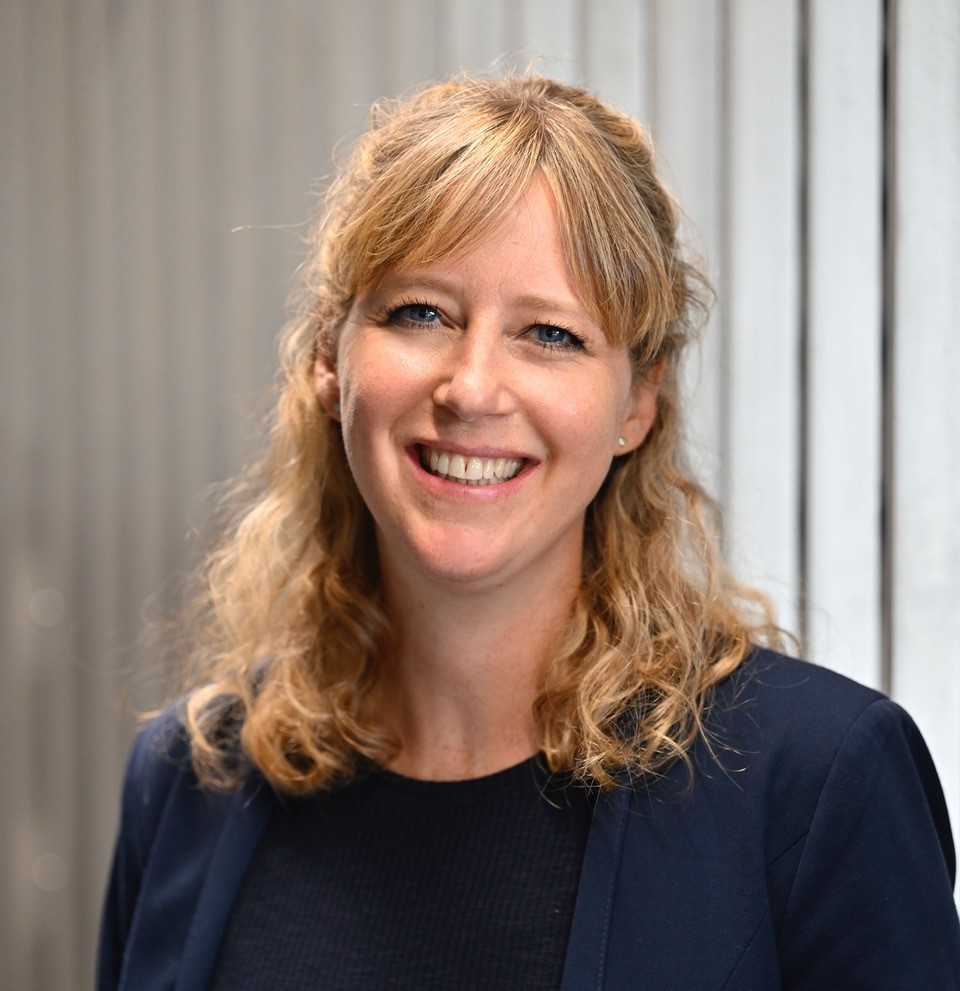
Speaker: Professor Miriam Stoeber, University of Geneva
Talk title: Signalling from internal membranes
Biography: Miriam Stoeber is an Associate Professor at the Department of Cell Physiology and Metabolism at the University of Geneva, Switzerland. She established her independent research group in 2019, with the support of a Starting Grant of the Swiss National Science Foundation. Her team investigates the (sub)cellular logic of GPCR signaling and develops new nanobody-based GPCR modulators.
Prof. Stoeber obtained her PhD at ETH Zurich in 2012, performed a short-term postdoc at the University of Oxford in 2013, and did a 5-year postdoc at the University of California San Francisco (UCSF) from 2014-2019. She is an EMBO Young Investigator since 2024 and a recipient of the FEBS Excellence Award 2023.
Hayley Sharpe
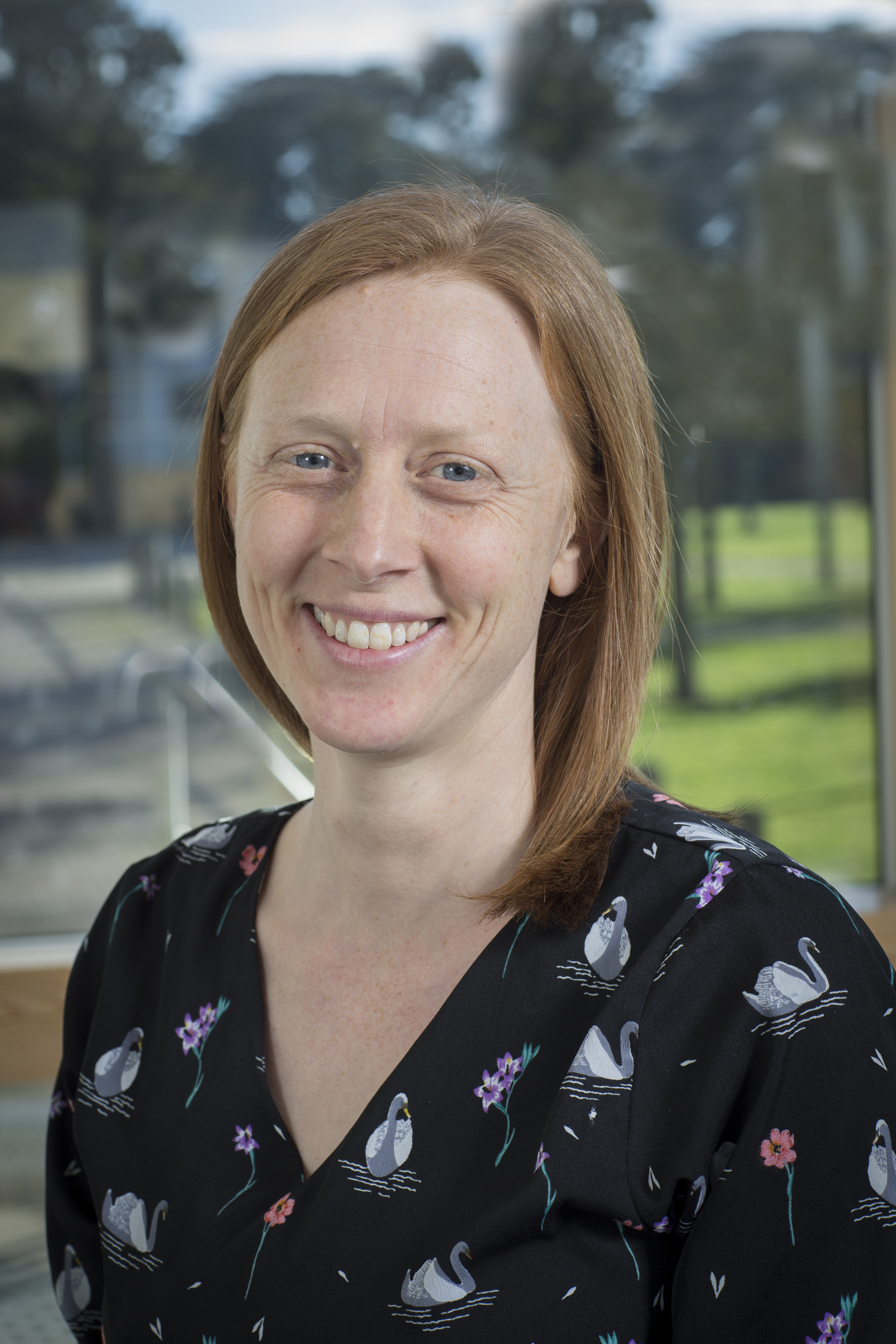
Speaker: Hayley Sharpe, Babraham Institute, Cambridge
Biography: Hayley Sharpe is a Group Leader in the Signalling programme at the Babraham Institute, Cambridge. She established her group at the Cambridge institute for medical research in 2016 with the support of a Wellcome/Royal Society Henry Dale fellowship, before moving to the Babraham Institute in 2019. She is a Lister Institute prize fellow and EMBO young investigator since 2020 and recipient of an ERC consolidator grant in 2023.
Her lab focuses on the interplay between protein tyrosine phosphatase and redox signalling in different areas including immunology, cancer and ageing.
Talk title: Cell signalling by receptor tyrosine phosphatases
Abstract: Protein tyrosine phosphorylation is a critical, reversible post translational modification for numerous cellular processes, and is often dysregulated in diseases such as cancer. The actions of kinases and phosphatases control cellular phosphotyrosine levels. The cysteine-based protein tyrosine phosphatases (PTPs) can be modified by reversible oxidation. We have used systematic approaches to identify receptor substrates to understand their function in cell decision making. Although there are no clinical inhibitors of PTPs to date, there are concerted efforts to inhibit their functions for therapeutic gain, and there is the potential to synthetically target them to dephosphorylate pathological proteins in so called PhosTAC approaches. By understanding PTP mechanisms we hope to reveal additional therapeutic modalities.
Dr Sampurna Chakrabarti
.jpg.aspx)
Speaker: Dr Sampurna Chakrabarti, Max-Delbrück-Centrum für Molekulare Medizin (MDC) - Berlin
Talk title: Phenotype-driven ultra-low input proteomics to identify novel targets for pain
Biography: Sampurna Chakrabarti, PhD (she/her) was an Alexander von Humboldt fellow and now a senior postdoctoral scientist at the Max Delbrück Center for Molecular Medicine in Berlin working on mechanosensation and pain. Dr Chakrabarti focuses on understanding the different subsets of pain sensing neurons by mapping their function to molecular signature using a variety of tools including electrophysiology and neuroproteomics. Dr Chakrabarti has co-authored more than 10 research papers in leading journals including Science, PAIN and Arthritis and Rheumatology and serves as reviewer in journals such as, Science Advances, European Journal of Pain, Pain Reports.
Dr Vladimir Yarov-Yarovoy
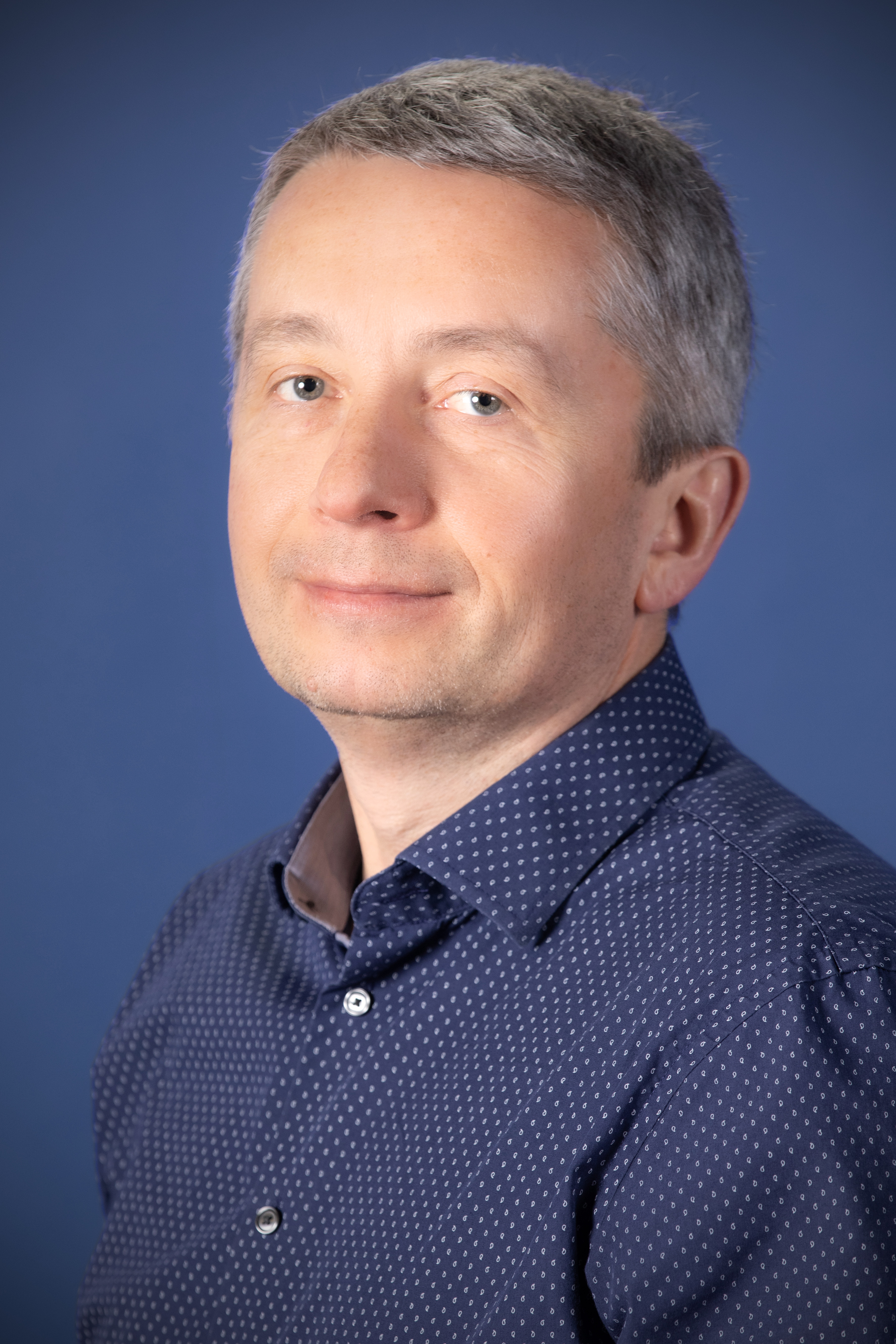
Speaker: Dr Vladimir Yarov-Yarovoy, Department of Physiology and Membrane Biology, University of California, Davis
Talk title: Peptide and small molecule design against voltage gated ion channels
Biography: Dr. Vladimir Yarov-Yarovoy earned an M.S. Degree in Physics at the Moscow State University in Moscow, Russia (mentored by Dr. Galina Mironova), and then Ph.D. Degree in Biochemistry and Molecular Biology at the Oregon Health Science University in Portland, Oregon (mentored by Dr. Keith Garlid). Dr. Yarov-Yarovoy was a postdoctoral fellow in Biophysics (mentored by William Catterall) and Computational Biology (mentored by David Baker) and then a Research Assistant Professor in the Department of Pharmacology at the University of Washington in Seattle, Washington. He joined UC Davis as an Assistant Professor in Physiology and Membrane Biology in 2011 and became a full Professor in 2020. Dr. Vladimir Yarov-Yarovoy’s research interests and expertise encompass neuroscience, protein structure, and computational biology. The main focus of his research group is on computational design of subtype-specific ion channel modulators, structure and function studies of voltage-gated ion channels, and development of computational methods for membrane protein structure prediction and design. Recent advances in computational protein design, determination of high-resolution ion channel structures and discoveries of natural peptides that target them with high affinity, set a stage for computational design of novel ion channel modulators.
UC Davis Health profile:
https://health.ucdavis.edu/physiology/faculty/yarovoy.html
LinkedIn profile:
https://www.linkedin.com/in/vladyy/
Abstract: Ion channels are pivotal in regulating electrical activity in excitable cells and are critical pharmaceutical targets for treating many diseases, including cardiac arrhythmia and neuropathic pain. Despite their significance, challenges such as achieving target selectivity persist in VGIC drug development. Recent progress in deep learning methods has enabled structure-guided computational design of biologics targeting ion channels. These developments coincide with a surge in experimental structural data for VGICs, providing a rich foundation for computational design efforts. Our interdisciplinary research team has recently developed a novel structure-based approach employing deep-learning-based RoseTTAFold, ProteinMPNN, and AlphaFold computational methods to design biologics targeting different regions of ion channels, including the pore domain, voltage-sensing domains, and interface with auxiliary subunits. We generated preliminary proof-of-concept data showing that we can successfully design small proteins targeting extracellular region of the selectivity filter of an ion channel. Our novel approach of designing biologics targeting ion channels could be widely applicable for generating molecular tools to study ion channel activity and to develop novel therapeutics targeting specific ion channel subtypes in a state-dependent manner.
Professor Colleen Clancy

Speaker: Professor Colleen Clancy, Department of Physiology and Membrane Biology, University of California, Davis
Talk title: Computational approaches to understand mechanisms of excitable disease in the heart and brain. Design detailed models of ion channel activity
Biography: Dr. Clancy is the Airline Miller Rolkin Professor in Health Innovation and serves as the Director of Precision Medicine and Data Sciences at UC Davis. She is the inaugural Editor-in-Chief of the Journal of Precision Medicine. Clancy’s research focuses on developing and implementing computational modeling and simulation of excitable systems that may serve to mechanistically link genotype with phenotype. Dr. Clancy's research focuses on understanding how abnormal genes, proteins, cells, and tissues disrupt complex systems to cause disease.
Dr. Clancy earned her PhD in Biophysics & Physiology from Case Western Reserve University and completed her Postdoctoral Training at Columbia University. She has published over 100 works, and actively serves in editorial and advisory capacities for several journals and organizations. Her research, supported by multiple NIH programs. In addition to her research program, Dr. Clancy has made significant contributions to the UC Davis School of Medicine, where she has played pivotal roles in academic personnel actions, including recruitment, appointment, merit reviews, faculty development, and more. She has chaired the UC System-wide Committee on Affirmative Action and Diversity and has been involved in various committees and task forces at UC Davis. Recognized for her leadership, Clancy is an alumna of the National Executive Leadership in Academic Medicine (ELAM) program and has received numerous awards, including the 2014 Dean's Excellence in Mentoring Award, the 2018 Deans’ Team Award for Excellence in Research, the 2018–19 Chancellor’s Achievement Award for Diversity and Community and the 2020 UC Davis School of Medicine Research Award.




